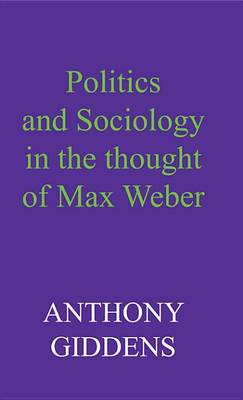Studies in sociology
1 total work
This book provides an interpretation of one of the key aspects of Max Weber’s work: the relationship between his political and sociological writings. Weber’s sociological studies have often been treated as if they were completely separate from his political attitudes and interests, and in general his political writings have remained less well-known than his sociological work.
The book contains three main sections. The first of these analyses the principal concerns underlying Weber’s political assessment of the prospective development of post-Bismarckian Germany. The second examines some of the way in which these views channelled his interests in sociology and influences his studies of capitalism, authority and religion. Finally, the third main section ‘reverses’ this perspective, showing how his conceptions of sociology and social philosophy in turn influenced the evolution of his assessment of German politics.
The book contains three main sections. The first of these analyses the principal concerns underlying Weber’s political assessment of the prospective development of post-Bismarckian Germany. The second examines some of the way in which these views channelled his interests in sociology and influences his studies of capitalism, authority and religion. Finally, the third main section ‘reverses’ this perspective, showing how his conceptions of sociology and social philosophy in turn influenced the evolution of his assessment of German politics.
